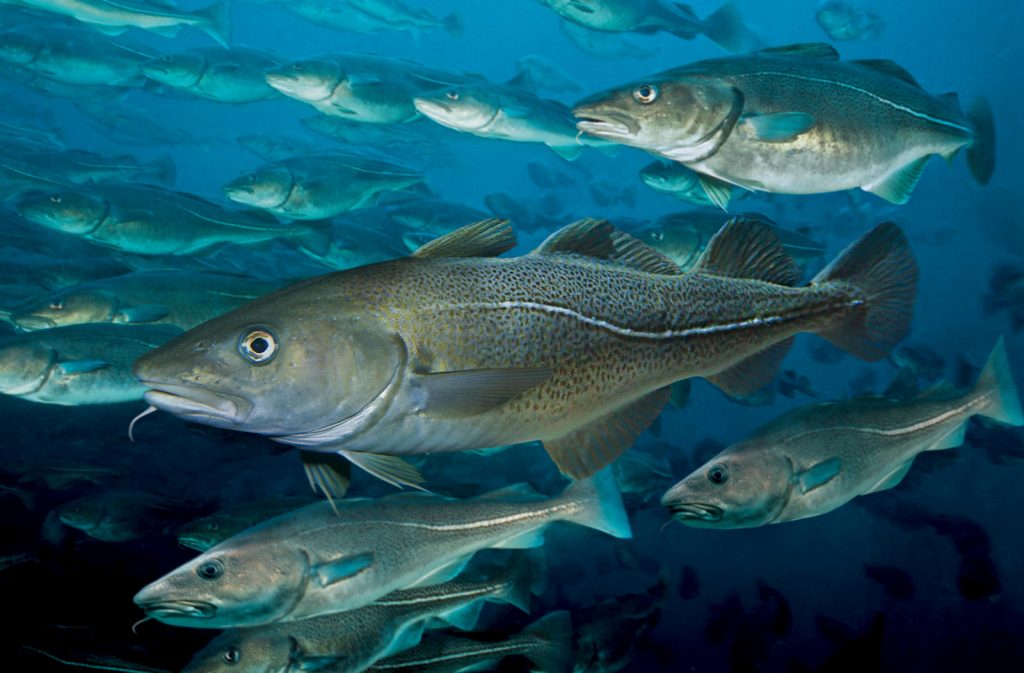
Atlantic cod, Paulo Oliveira / Alamy Stock Photood
We are living in extraordinary and difficult times. EU leaders are taking tough decisions in response to the COVID-19 pandemic, decisions informed and driven by scientific and expert advice and projections. The crisis we face because of climate change and biodiversity loss is no less existential, and the response should be no less scientific, which is why the EU Commission is in the process of developing strategies which could be pioneering in how we respond to these crises.
The Farm to Fork strategy, expected to be released by the end of the month, should lay-out how we put in place systems to deliver healthy food which does not harm the environment. Also in the pipeline is a new biodiversity strategy, which should complement and work in tandem with the Farm to Fork Strategy to deliver on the EU’s Green Deal.
The need to transform how we use and produce food has been clear for decades, yet political decisions have been made which have ignored this reality. We have been farming and fishing – and consuming – as though everything will be fine. This clearly needs to stop. We must decide upon what is necessary in order to achieve a truly sustainable food system.
Our oceans and fisheries are key to driving a truly ambitious and timely agenda for food production and consumption in Europe, and the science is clear. The recent Intergovernmental Panel on Climate Change (IPCC) Special Report on the Ocean and Cryosphere states that having a healthy ocean is part of any mitigation and adaptation to the climate emergency, while last year’s Intergovernmental Science-Policy Platform on Biodiversity and Ecosystem Services (IPBES) report highlights fishing as the biggest pressure on our ocean ecosystem.
We must enact fundamental changes in fisheries management by moving from an obsession with maximising resource [fish] extraction to prioritising ecosystem health – an ecosystem that will continue to provide fish in the future. Accomplishing this means acknowledging and minimising the true carbon footprint of fishing, such as from bottom trawling and aquaculture which can be greater than land-based animal proteins. The EU’s Farm to Fork Strategy must set ambitious new targets to reduce seafood consumption, as well as prioritise the immediate implementation of existing targets and proven strategies to make seafood production ecologically sustainable.
In the coming weeks and months, we will learn to adapt our lives. The Farm to Fork and biodiversity strategies are an opportunity to ensure a similar adaptation. Business as usual is not an option. Our relationship with food must be based on a healthy environment.
The EU has committed to lead on the Sustainable Development Goals but achieving these aims will not be possible if we continue with the same attitude that has got us to where we are. A new, fairer and more sustainable approach to food systems is needed; the Farm to Fork Strategy is a major opportunity for us to contribute to Europe’s climate change agenda, protect the environment and preserve biodiversity. It has the potential to ensure fishers’ position in the value chain and to encourage ecologically sustainable food consumption that delivers affordable, safe healthy food for all. Now is the time for the EU Commission and the Directorate-General for Maritime Affairs and Fisheries (DG Mare) to deliver this.
- Rebecca Hubbard is the Our Fish Programme Director. Read the Our Fish submission to the Farm to Fork Strategy.
